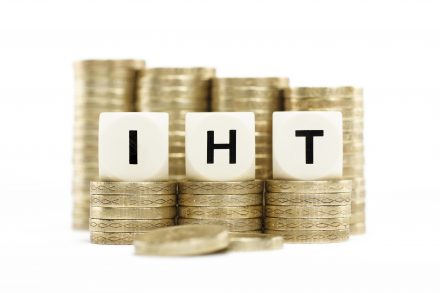
How to pay Inheritance Tax
22nd January 2024 by Alison Lloyd
If you are dealing with the estate of someone who has died, you may need to pay Inheritance Tax (IHT). Some or all of the IHT has to be to be paid before the Grant of Representation is issued enabling you to administer the estate. The question of whether some or all the IHT has to be paid prior to the application for the Grant depends on the type of assets that form part of the estate. The IHT on property does not have to be paid up front although if there are sufficient funds to do so then it is advisable to settle all the IHT to save interest.
IHT is payable on the part of an estate worth over £325,000, usually at the rate of 40% of the amount over this threshold. There are some reliefs and exemptions available, but the tax can still be a substantial sum of money.
It is not possible to deal with the estate administration until the relevant amount of IHT has been paid. This is because you will need either a Grant of Probate or a Grant of Letters of Administration to carry out the administration and you cannot apply for this until the relevant amount of IHT has been paid.
Paying Inheritance Tax
The first step in paying Inheritance Tax is to ask HM Revenue & Customs (HMRC) for an Inheritance Tax reference number. They will need the deceased’s National Insurance number. You should request the number at least three weeks before you intend paying the tax.
You should aim to pay the IHT before the end of the sixth month after the date of death. After that time interest is charged by HMRC.
Once IHT has been paid, you can apply for a Grant of Probate or Grant of Letters of Administration around four weeks afterwards.
Options for paying Inheritance Tax
From your funds
If you are able, you can pay the IHT from your own funds and claim this back from the estate once money is available. Similarly, if you held a joint account with the deceased and there is sufficient money in the account, that can be used.
Payment from the deceased’s funds
If the deceased had money in a bank or building society account or in National Savings and Investments or Government stock, you can ask the asset holder to pay the IHT. You will need to fill in HMRC’s schedule IHT423 and send it to the account holder.
The organisation will pay the IHT directly to HMRC.
Paying Inheritance Tax in instalments
If money is not available to pay all of the IHT upfront and the type of assets qualify, you can ask HMRC if you can pay in instalments. This will give you the chance to collect in the estate’s assets, to include selling property where necessary.
You will need to tell HMRC that this is your preferred option when you fill in form IHT400, which is the IHT account form.
The tax can be paid over ten years in equal annual instalments. The first instalment must be paid by the end of the sixth month after the date of death.
Interest will be payable on the outstanding sums, and you must clear these as soon as you are able. You can ask HMRC to provide a final assessment at any time setting out the full amount they need to clear the debt.
Taking out a loan
Banks may be prepared to advance a loan using the deceased’s assets, such as their home, as security if there are no other options. It is advisable to take professional advice before doing this however.
Preparing for Inheritance Tax
If you know that your estate will attract IHT when the time comes, you can take steps to make it easier for your executors to pay. You can ensure that you have sufficient funds available in a bank, building society or National Savings & Investment account.
Alternatively, you can take out an insurance policy which will pay out on death to give your executors or administrators enough money to cover the IHT bill.
Contact us
If you would like to speak to one of our expert Wills, Probate, Tax and Trusts team please call 01202 377984 or email a.lloyd@laceyssolicitors.co.uk and we will be happy to help.



